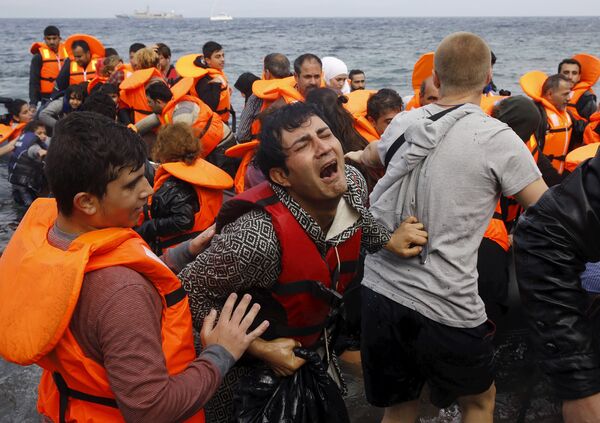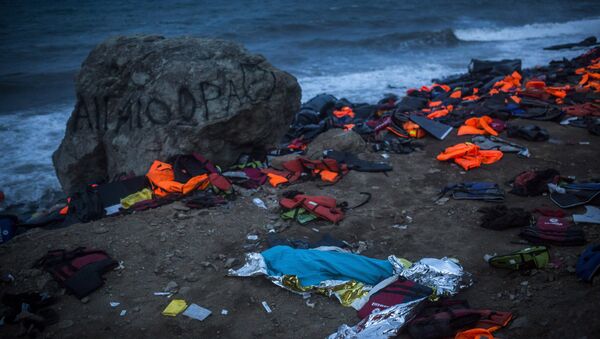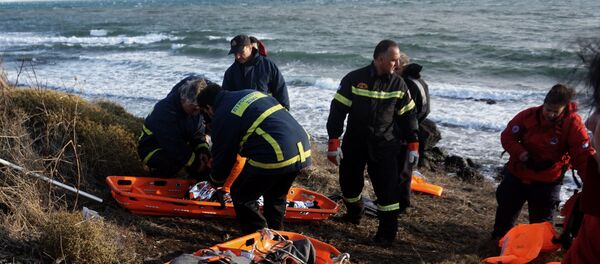Indeed, when the news broke two years ago of a boat carrying hundreds of refugees sinking near the coast of Italy, their bodies lay at the bottom of what became wildly known as the "Mediterranean graveyard". But it is no longer just the Mediterranean graveyard – the reality is that the Greek islands have become a refugee graveyard.
Two years ago Prime Minister of Malta, Joseph Muscat, called for urgent action from European countries to combat the migration of people across the sea. He said:
"As things stand we are building a cemetery within our Mediterranean Sea."
Two years later, a graveyard lies at the bottom of the Aegean Sea, while Lesbos struggles to find enough burial sites to lay the dead.

Twenty-six refugees, mainly children, have drowned recently trying to reach Lesbos.
"The needless loss of life should be enough to outrage us all," said Peter Bouckaert, director of Human Rights Watch, noting it is outrageous that "months into Europe’s refugee crisis, Europe’s leaders still have not taken the steps necessary to help prevent such unnecessary tragedies".
A recent rescue mission by Spanish volunteers on jet skis reveals the horror lifeguards are facing. Speaking to Bouckaert, one rescuer described seeing lifeless bodies floating in the sea:
"So many of them were babies. We saw at least 30 bodies at the scene in the water."
Bouckaert begs the question as to why months into the crisis it is still only volunteers rescuing refugees arriving on Europe’s shores and providing medical care on Lesbos.
"What is the European Union doing?" he asks and says the resources deployed by Greece and the EU "remain woefully inadequate".
We must push Europe to address the #refugeecrisis with greater determination and better coordination. #vouli #Greece
— Alexis Tsipras (@tsipras_eu) October 30, 2015
Greece’s Prime Minister, Alexis Tsipras has hit out at EU policies which are ineffectively dealing with the refugee crisis. Tsipras told Greek parliament:
"Dead children always incite sorrow, but what about the children who are alive who come in thousands and are stacked on the streets? Nobody likes them."
Yet the stacking up of bodies in morgues on the island of Lesbos is a reminder that the crisis — which began two years ago, is still building – and still lacking support from all European countries.



